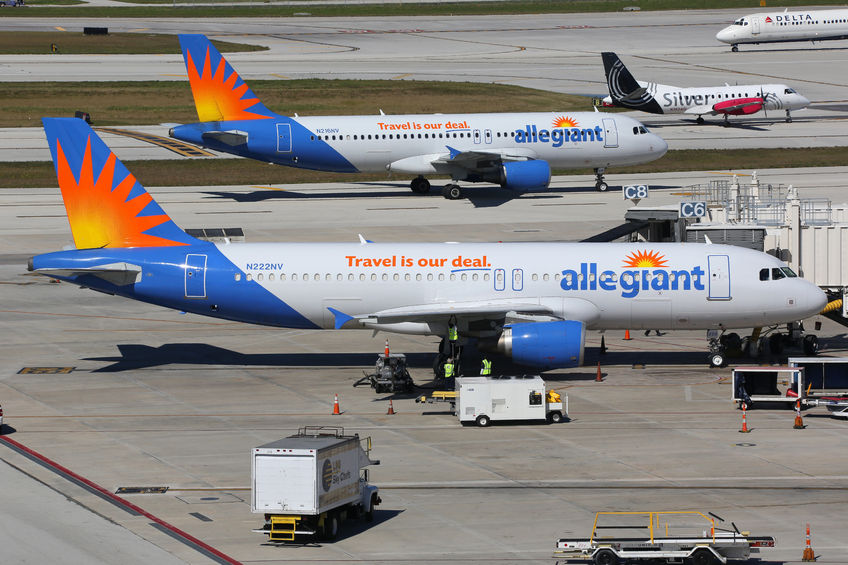CBS News went after the safety record of Allegiant Airlines. You wouldn’t know from the piece that:
- Air travel in the US and even the world is remarkably safe
- Safety records have been improving, the loss of a life on a Southwest Airlines flight this year was the first US commercial airline death in 9 years
- Allegiant has had a number of mechanical issues with its MD80 fleet, which is being phased out.
- And these stories have largely all been reported before

Copyright: boarding1now / 123RF Stock Photo
The CBS piece involved questionable journalism at best.
None of which is to say that I want to fly Allegiant or any other low cost carrier (although arguably Spirit’s “Big Front Seat” is one of the best deals in travel) and that if I’m flying Allegiant I’d want to be on a route operated by an Airbus narrowbody and not an MD80.
Meanwhile American Airlines mechanics have been at an impasse with the airline over a new contract. American says they’re offering industry-leading pay, mechanics complain the deal on the table allows the carrier to outsource too much work. Unhappy mechanics always say what’s at issue is safety. Mechanics over time have complained about lapses in maintenance and cultural issues at the airline, though it’s difficult from the outside to evaluate how much of that is ginned up versus real.
Under pressure to ‘do something’ the Department of Transportation’s Inspector General is going to audit the FAA’s oversight of American Airlines and Allegiant. This is a change in focus of an existing audit launched at the behest of Democrats in Congress last summer.
It’s a concern, apparently, that the FAA takes a collaborative approach to safety rather than focusing on finding violations it can fine,
During our initial audit work, we visited two air carriers and found that FAA had moved its oversight strategy from emphasizing enforcement actions to working with carriers to address the root causes for noncompliance of safety regulations

There’s little wrong with a serious evaluation of comparative strategies for safety, bearing in mind that a pretty good indication that the current approach works is the strong safety record of airlines. And to be sure while I think the FAA takes its safety responsibilities seriously it can be terribly slow taking action for instance charter carrier Island Airlines ignored an FAA audit for a year before the agency did anything about it this month. (HT: @CrankyFlier)
[T]he inspector general’s office would examine whether (working closely with airlines rather than fining) is effective. At both airlines, inspectors will seek to “determine whether FAA ensures that Allegiant and American Airlines implement effective corrective actions to address the root causes of maintenance problems.”
The FAA said in a statement it stands by its strategy.
“This system is designed to identify potential risks before they become serious problems and ensure that corrective action is taken,” it said in the statement. “The process is dynamic and requires that the FAA, and the airlines we oversee, constantly strive for safety improvements.”
What we want to be careful of is a safety regulator who responds to the demands of politicians, the media, or labor negotiations.


Yes, do cut all those regulations and oversight that hamper business.
I’ll drive my car or take a boat!
Interesting comment on regulation to improve vs. regulation to enforce. Sometime ago the investment firm I worked for was acquired by a commercial bank and our primary regulation switched from the SEC to the Federal Reserve. I asked one of our people leading the interface with the regulators if there was a difference and he said that the SEC people focused on playing “gotcha” which led to their concentrating on finding minor issues they could highlight while the Fed regulators looked for systemic risks and working with you on eliminating them. It seemed to me then and now, in the airline case, that the latter approach is more valuable to the public.